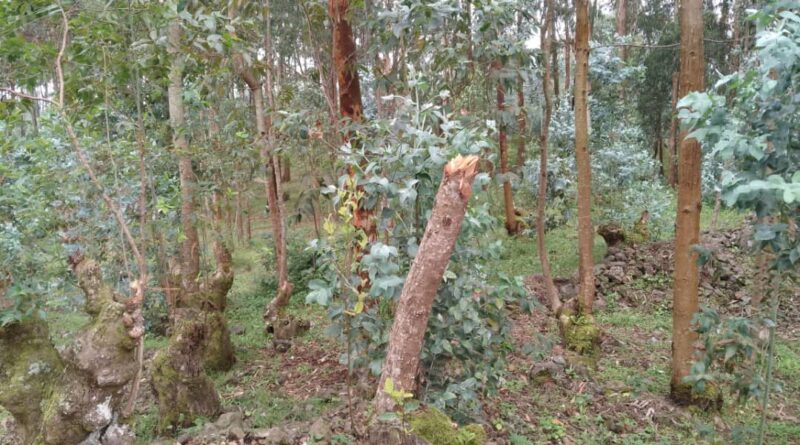Musanze: Illegal tree cutting in forests raises environmental and economic concerns
While the Rwandan government aims to restore two million hectares of forest, some residents continue to pose a significant challenge through illegal logging and tree theft.
Residents of Musanze Sector in Musanze District express deep concerns over thieves who invade their forests, cut down trees, and sell them, leaving them with financial losses.
According to these residents, illegal tree cutting is particularly rampant in Cyabagarura Cell, in Bitare (Kabaya) Village, near the Rwebeya and Kansoro rivers. Forest owners say they are unable to stop the theft or report the perpetrators because when they try, they are attacked and injured.
Oscar Nzabakurikiza states: “Our forests are being destroyed in broad daylight. Thieves cut down trees and sell them to people constructing houses. We have tried to stop them, but they keep coming back, cutting more trees, to the point where we wake up to find our forests nearly gone.”
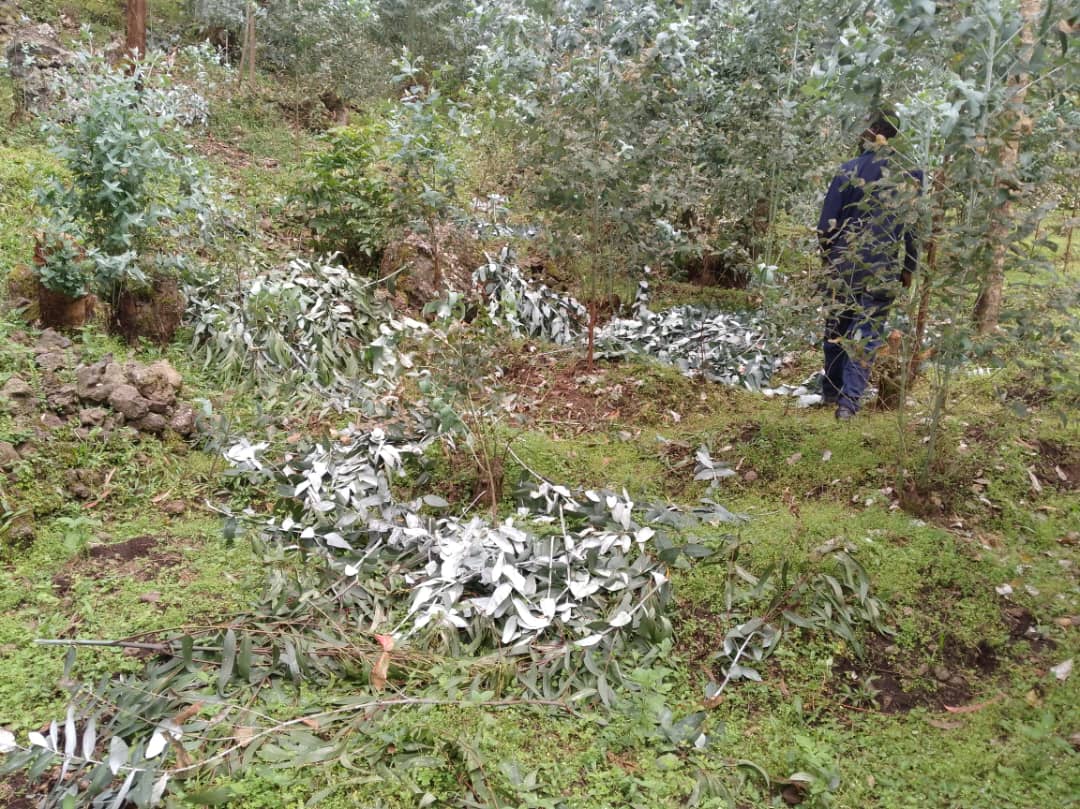
He adds: “If a forest owner tries to intervene, the thieves chase him away, and if he is not careful, they may even attack him with machetes since they operate in large groups. We have reported this to local authorities, including the sector office and the Rwanda Investigation Bureau (RIB), but even when some are arrested, they are released the next day. When they return, they identify those who reported them and retaliate by assaulting them.”
One example illustrating this issue is a man who once reported tree thieves. The thieves later found him at his business, attacked him with a machete, and left him severely injured. He had to be hospitalized for several days.
A resident states: “We are completely helpless. The security of our forests is compromised. The thieves steal our trees, put our lives in danger, and cause environmental destruction. We are forced to abandon our forests, not because we want to, but because we have no choice. First, they steal from us, then they threaten our safety.”
Edouard Twagirimana, the Executive Secretary of Musanze Sector, told Greenafrica.rw that anyone caught cutting down trees illegally is arrested and punished. He urged residents not to protect those involved in illegal logging.
He stated: “We arrest and send some offenders to rehabilitation centers, including Kinigi. Others are prosecuted and sentenced, with some having already served their sentences. We continue to monitor the situation closely in collaboration with residents. Our goal is to encourage them to take responsibility for protecting their forests, just as they safeguard their crops.”
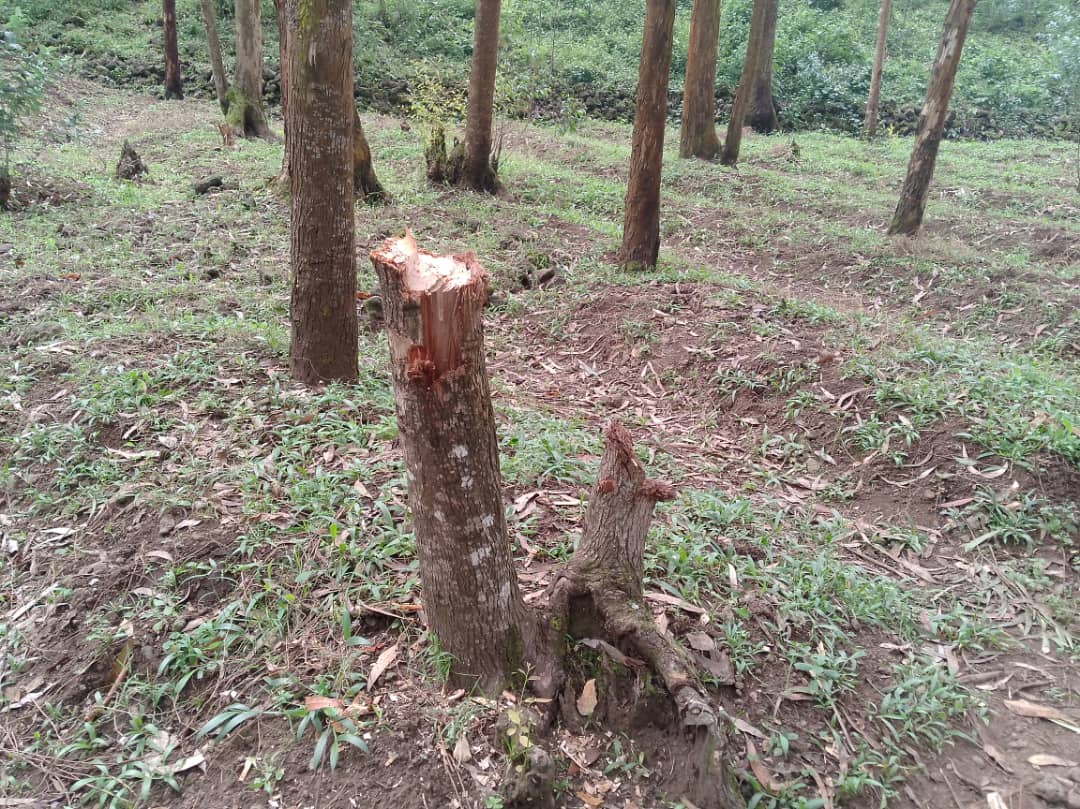
Twagirimana also warned people building houses to be cautious when purchasing timber, ensuring they do not unknowingly buy stolen trees.
He said: “Anyone who buys stolen timber is treated the same as the thief and faces penalties, including paying for the damage. Construction site owners should verify the source of their timber, ensuring it meets harvesting regulations and is legally obtained before making a purchase.”
Marie Grace Wishavura, the Environmental Officer of Musanze District, emphasized that illegal logging not only destroys forests and the environment but also goes against Rwanda’s values.
She said: “It is a bad habit and does not reflect the responsible citizen that Rwanda aims to nurture. Cutting trees follows legal procedures, and harvesting requires a permit. Since these permits are now free, there is no excuse for illegal logging.”
She continued: “Illegal tree cutting contributes to climate change, leading to drought and extreme temperatures. It also threatens biodiversity by destroying habitats, potentially turning areas into deserts. This is why Rwanda signs international agreements to protect the environment and reduce air pollution.”
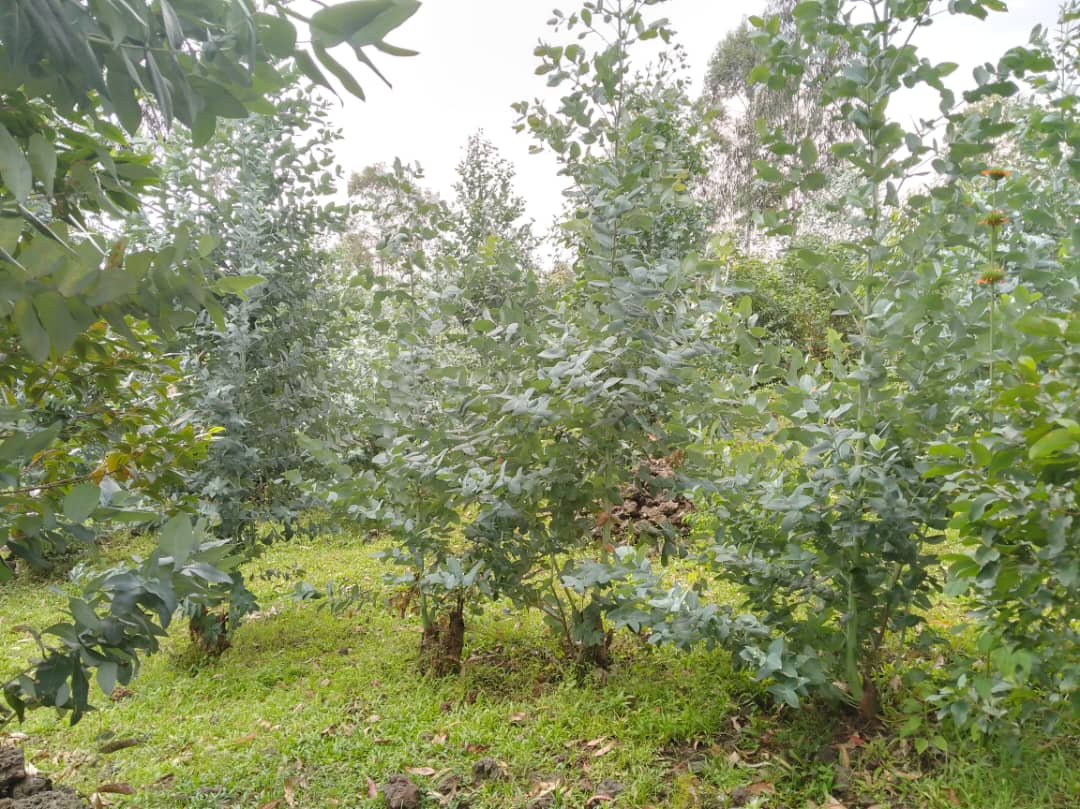
Wishavura called on all stakeholders, including local authorities and security agencies, to work together in tackling illegal logging.
In 2024, Musanze District restored 20 hectares of forest, built terraces on 380 hectares of land, and planted 675,772 native trees and 14,566 fruit trees. This aligns with Rwanda’s 2050 Vision to combat climate change.
The Rwanda Forestry Authority (RFA) announced that the government is making significant progress toward its goal of restoring two million hectares of degraded land by 2030 to protect biodiversity. The targeted areas were once covered by forests but have been damaged by human activities, endangering both plant and animal life.
In Rwanda, illegal logging is strictly prohibited and carries severe penalties under environmental and forestry laws.
1. Environmental Law
Law No. 48/2018 of August 13, 2018, regulating environmental protection, imposes severe penalties on those who destroy forests or engage in illegal logging.
2. Forestry Law
Law No. 47/2013 of June 28, 2013, states that anyone wishing to harvest a significant number of trees or engage in mining within a forest must obtain a permit.
Changing forest land use (e.g., converting forests into farmland or residential areas) requires authorization from relevant authorities.
3. Penalties for Illegal Logging
Legal consequences: Offenders can face prosecution and imprisonment.
Fines: Individuals may be fined between 500,000 Rwf and 5,000,000 Rwf, depending on the severity of the offense.
Imprisonment: Offenders can face jail terms ranging from six months to five years.
Stricter penalties apply if the offense was intentional and caused significant environmental harm.
4. Additional Measures
Offenders may be required to restore the damaged forest.
Authorities can confiscate equipment used in illegal logging.
Offenders may be banned from engaging in forestry-related activities in the future.
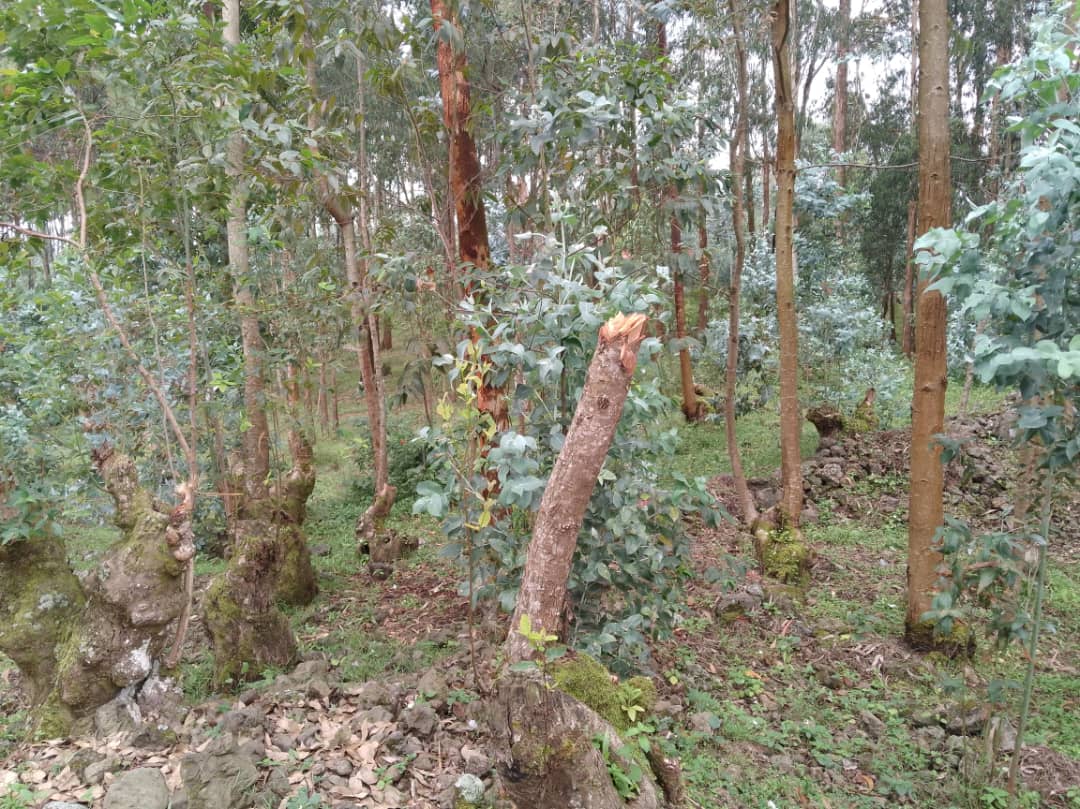
The government urges all citizens to actively participate in environmental conservation, as protecting forests is a shared responsibility involving security agencies, local authorities, and individual residents.

